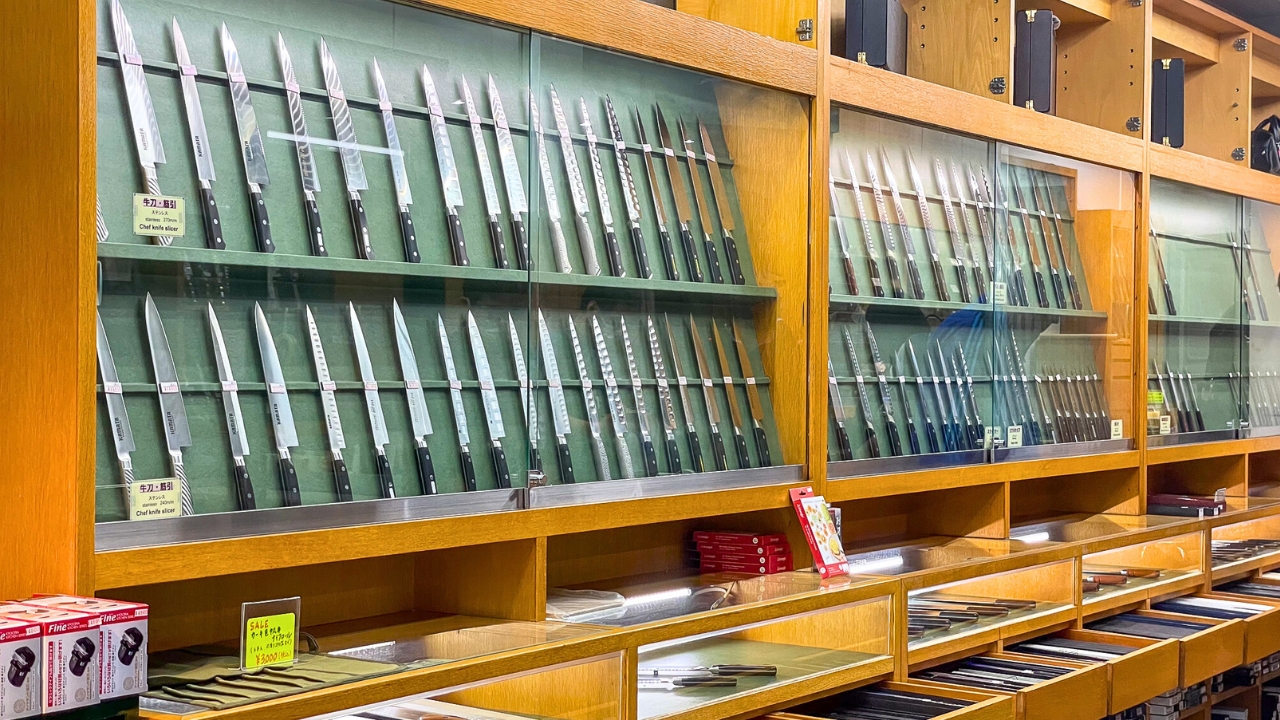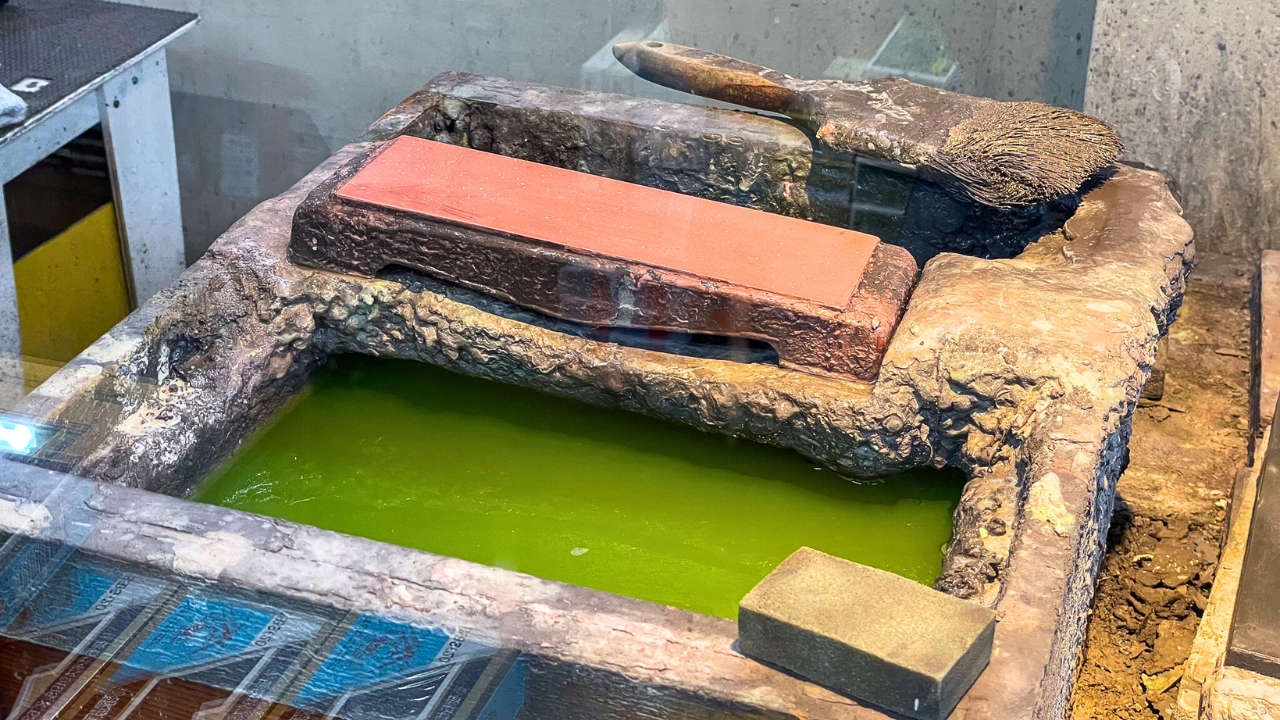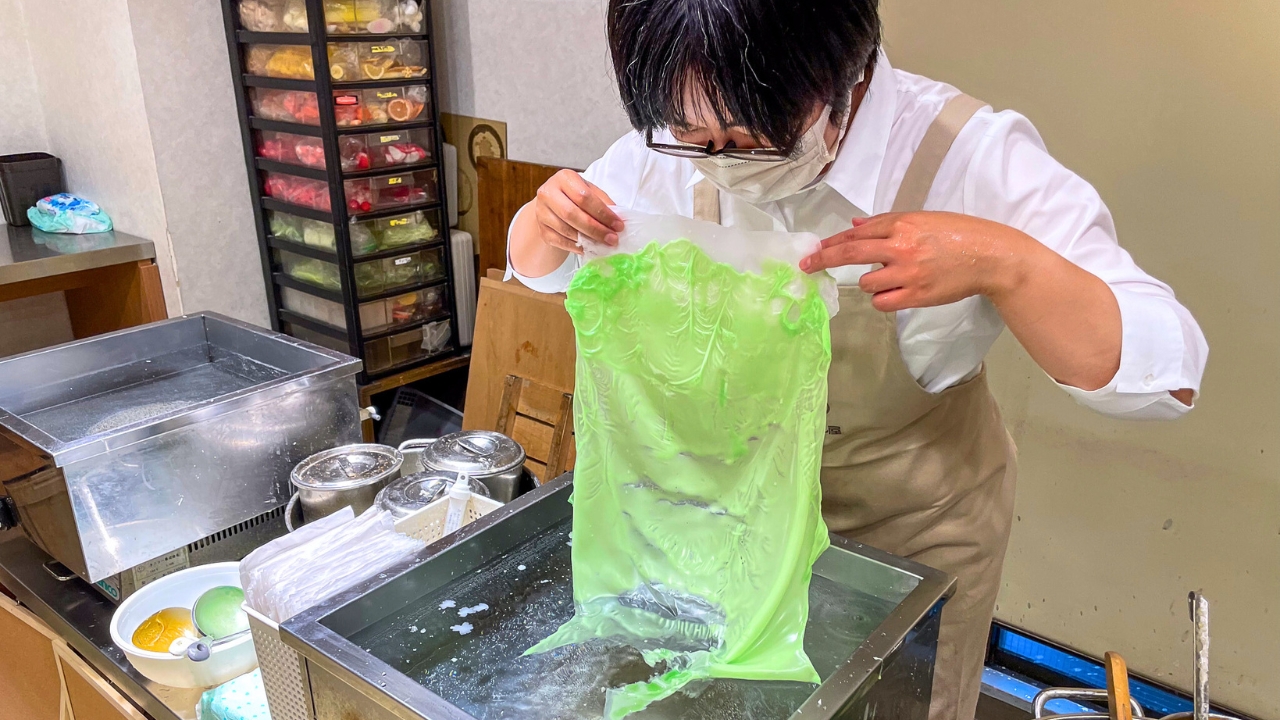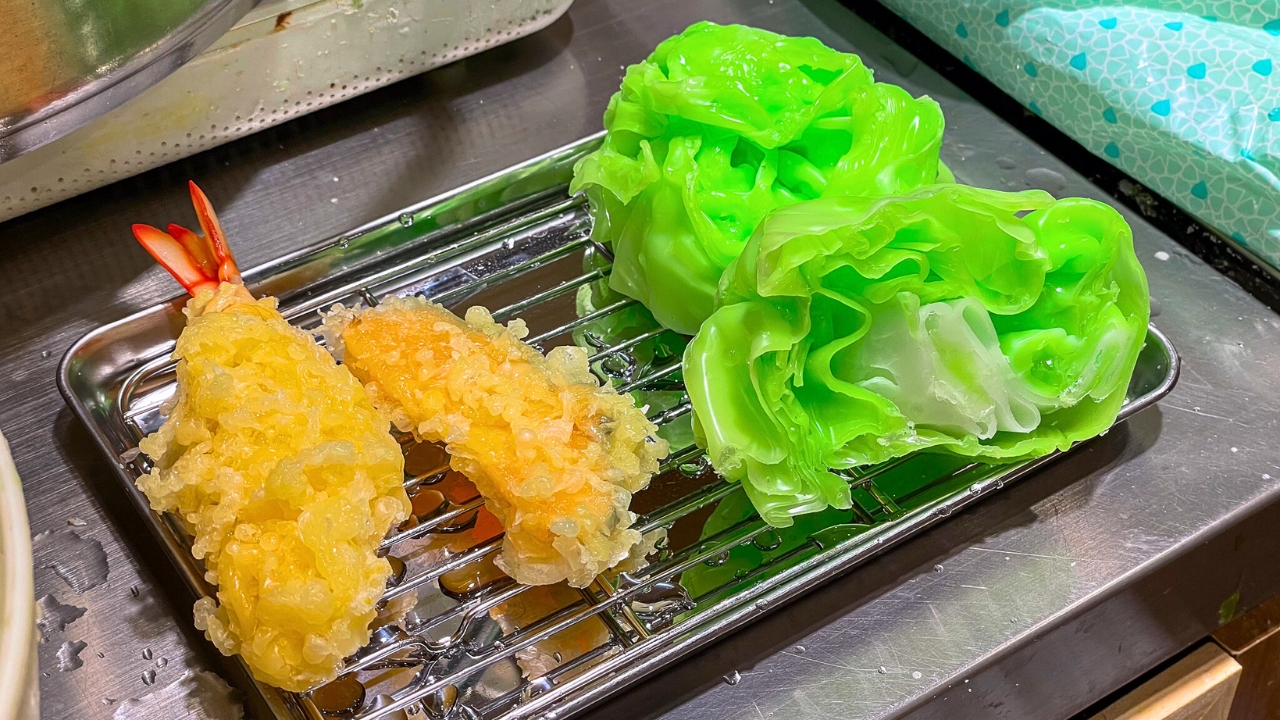Blog
[Asakusa] Exploring Kappabashi Dougu Street: A Must-Visit Kitchen Town for Tourists in Tokyo

When visiting Asakusa, a popular destination for its historic temples and vibrant streets, don’t miss the chance to explore Kappabashi Dougo Street. Also known as Kitchen Town, Kappabashi Dougu Street in Tokyo is a famous shopping street lined with stores selling kitchenware, restaurant supplies, and food replicas. It is a popular destination for both professional chefs and home cooks seeking high-quality cooking tools and equipment. It’s also an excellent place to find practical souvenirs that will remind you every day of your trip to Japan. Here are three shops that you’ll definitely want to check out during your visit.
Content
[Kitchenware] Fuwari: A Tableware Paradise

One standout store on Kappabashi Dougu Street is Fuwari, a three-story shop dedicated entirely to various kinds and styles of tableware. It’s a great place to pick up souvenirs and gifts, especially for friends and family. You could get something familiar, like one of their beautiful mugs, or choose from their great selection of traditional Japanese tableware, including stunning tea bowls and tea ceremony accessories such as tea whisks and scoops, sake cups and bottles, and exquisite wooden bento boxes.

I recommend getting some hashi oki (chopstick rests 箸置き) and kozara (small plates 小皿) if you want something small and unique. Hashi oki come in various designs, from elegant wooden parquet rectangles to whimsical ceramic tofu topped with soy sauce and green onions or colorful origami cranes. Kozara, on the other hand, come in patterns ranging from subtle to bold, including depictions of ukiyo-e woodblock prints and kimono-like designs. These items are functional for everyday use and beautiful enough to be displayed as art in your home.

Fuwari
Address: TDI building, 2-6-6, Nishiasakusa, Taito City, Tokyo
Hours: 9:30 am – 6:00 pm
Closed: New year holiday season
Website: http://www.kwtdi.com/en_fuwari.html
[Japanese Knives] Kamata Hakensha: A Cut Above the Rest

Kappabashi is the perfect place to pick up a high-quality kitchen knife. However, choosing which store to go to can feel like a challenge with the sheer number of knife stores available. Kamata Hakensha, a family-owned business which celebrated its 100th anniversary in 2023, is a standout option and one of only a handful of stores that have been in operation for so long. The store’s long history began after the Great Kanto Earthquake in 1923, initially focusing on sharpening scissors and razors for barbers as a way to earn a living before expanding to selling knives. Today, Kamata Hakensha is renowned for the quality of its original line of knives, all of which have been designed by the owner, as well as its skill in sharpening and caring for knives.

If you’re unsure which knife to get, Mr. Kamata recommends a chef’s knife or a santoku knife made from stunning Damascus steel. A santoku knife has a shorter, wider blade than a chef’s knife, so your knuckles stay clear of the cutting board and is ideal for vertical chopping. Kamata Hakensha offers free hand engraving of your name on the knife in Japanese kanji, katakana characters, one of the Japanese phonetic alphabets or simple letters like initials.

A wetstone where knives are sharpened in-house.
Kamata offers solutions if you’re worried about maintaining your knife once you return home. You can mail your knife back to them for sharpening or purchase sharpening stones and gadgets to keep your knife in excellent condition yourself.
Kamata Hakensha
Address: 2-12-6 Matsugaya, Taito City, Tokyo
Hours: 10:00 am – 6:00 pm
Closed: irregular holidays
Website: https://www.kap-kam.com/en/
[Food Replicas] Ganso Shokuhin Sample-ya: Bringing Home Japanese Culinary Art

While exploring Asakusa and other parts of Tokyo, you will likely notice that many restaurants display models of the dishes on their menus in showcases. Called shokuhin sanpuru in Japanese, these food replicas are a unique part of Japanese food culture. While these replica foods are said to have been invented in the late Taisho (1920-1926) and early Showa (1926-1945) eras, no documents have been found that clearly describe how these models came to be. However, these models became very important in the 1920s when dining out at restaurants suddenly became very popular. People who came to Tokyo from the surrounding cities unfamiliar with the food served in the city’s restaurants could see what was on the menu before they entered, which helped speed up the time it took for them to order.
Originally made from colored wax, these food models are now made using resin for increased durability. At Ganso Shokuhin Sample-ya, you can purchase food replicas as souvenirs. They have everything from super-realistic magnets and keychains to models of sushi dinners and bowls of ramen!

On the second floor, you can try making your own samples using the traditional wax method! With their tempura and lettuce plan, you can create two types of “tempura” and a small head of “lettuce.”

An instructor demonstrates how to make the lettuce.
This is a great experience for families with children as it’s easy enough for kids to enjoy but surprisingly challenging for any adult invested in making the perfect samples. I tried my hand at it recently and made a tempura shrimp and a slice of pumpkin.

While I was particularly proud of my shrimp, the lettuce was a little tricky, but still great fun! If you’re traveling in a larger group (up to eight people), consider their pizza-making experience!
Ganso Shokuhin Sample-ya also offers a variety of sample-making kits, including soba, ramen, parfait, and other delicious-looking meals for tourists to enjoy experience making replica foods at home.
Ganso Shokuhin Sample-ya
Address: 3-7-6 Nishi asakusa, Taito City, Toky
Hours: 10:00 am – 5:30 pm
Closed: New year holiday season
Website: https://www.ganso-sample.com/en/
Kappabashi Dougu Street is a must-visit for any tourist in Tokyo. It offers a blend of practicality, tradition, and fun. Whether you want to shop for professional-grade kitchenware or unique souvenirs or want a fun, hands-on activity, Kappabashi has something for everyone.
Writer
Rachael Aoki
Originally from the East Coast of the United States, Rachael has called Japan home for over a decade. She enjoys discovering destinations that are popular with locals from quaint cafes to hole-in-the-wall eateries and sharing that information with visitors from overseas. She also loves taking trips to onsen and is always up for a trip to Hakone, Kanagawa.
